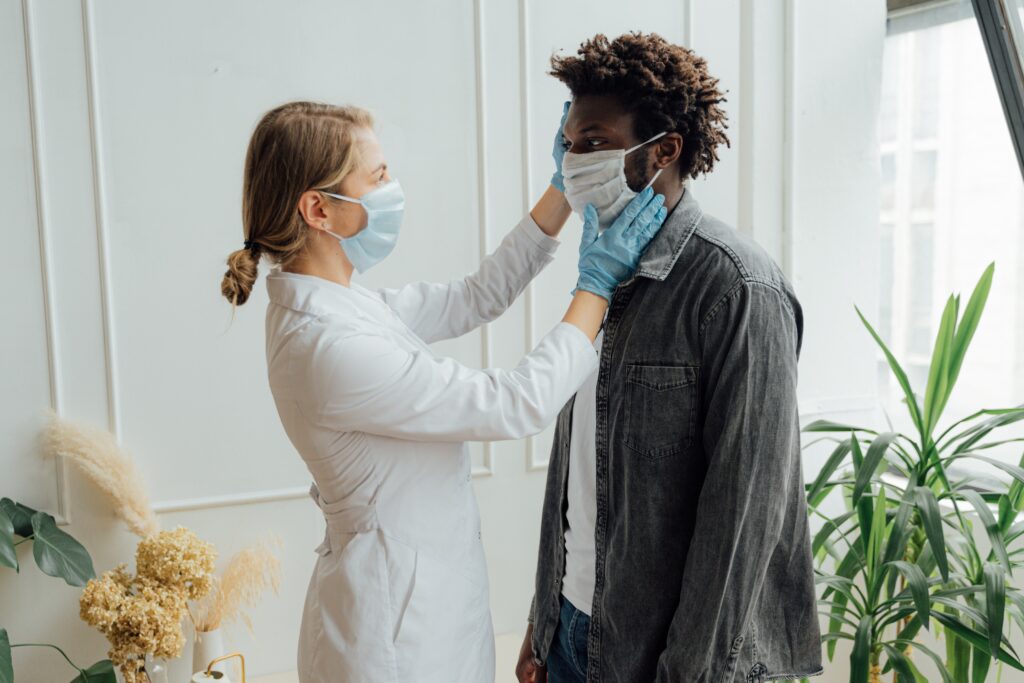A Deep Dive into the Future of Behavioral Health Care

Is the current state of mental health care causing you concern? This is a common feeling as individuals navigate the complexities of heightened stress and mental health difficulties in today’s rapid-paced environment.
Traditional approaches to mental health care have fallen short, leaving numerous individuals lacking essential support. However, there is hope on the horizon. Envision a future where technology merges with tailored care and empathetic insight, fundamentally altering our approach to mental health.
This article delves into an innovative shift poised to fundamentally change the landscape of mental well-being care.
The Digital Transformation
In this digital age, you have seen the emergence of telehealth services. It allows individuals to connect with mental health specialists from the comfort of their own homes. It has been a game-changer, especially for those who may have faced barriers to accessing in-person care, such as long commutes or mobility issues.
Mobile apps and online platforms empower individuals to control their mental well-being. These tools offer many resources, from meditation and stress management apps to AI-driven chatbots that provide instant support and guidance.
Moreover, according to BCG, technological advancements will make numerous new prospects in digital health possible in 2023. One advancement is the use of digital twin technology, a type of virtual simulation modeling. The healthcare sector is adopting more applications of digital twins in studies, hospital management, and modeling of diseases.
Additionally, virtual reality is providing novel techniques for addressing mental health disorders. The push for more intelligent clinical advancement is leading companies to explore the potential of ChatGPT. This maturing AI tool is being utilized to generate therapeutic concepts, analyze medical information, and identify trends. Such ongoing technological advancements aim to reduce healthcare expenses for consumers. You may enjoy reading our related article on how to disconnect from social media
Personalized and Precision Care
Advances in genetics, neuroscience, and data analysis allow us to delve deeper into understanding the intricate workings of the human mind. This deeper understanding means treatment plans can be fine-tuned based on a person’s genetic makeup, brain chemistry, and personal experiences.
Imagine a therapy plan crafted specifically for you, considering your genetic predispositions, life experiences, and preferences. This level of personalization can greatly enhance the effectiveness of treatment while minimizing potential side effects.
Additionally, with the aid of NIMH, it aspires to introduce a revolutionary new program that will revolutionize precision medicine in psychiatry. The initiative is called IMPACT-MH (Individually Measured Phenotypes to Advance Computational Translation in Mental Health).
It will aid a study that explores new data-adding techniques. These comprise information regarding activity levels or proficiency in computerized behavioral activities. Additionally, conventional clinical data may also be useful in helping patients and mental health specialists make future decisions. You may enjoy reading our related article on How to Prepare for a Therapy Session
Virtual Reality and Therapeutic Tools
VR offers a new dimension to mental health treatment. It can recreate real-world scenarios in a controlled environment, allowing individuals to confront and manage their fears and anxieties. For instance, someone with a fear of flying can undergo virtual flights with the guidance of a therapist, gradually reducing their anxiety.
Moreover, VR can transport individuals to serene and calming environments, relieving stress and promoting relaxation. This immersive experience can be particularly helpful for those dealing with trauma or acute stress disorders.
AI and Machine Learning
Algorithms driven by AI have the capability to process extensive datasets. These include a person’s medical history, genetic information, and social interactions to predict potential mental health issues. The ability to identify issues at an early stage can significantly alter the course of preventing their progression.
Personalized treatment strategies are being formulated through the application of machine learning. By examining information from numerous patients facing comparable conditions, AI can recommend tailored and efficient therapies and medications catering to each individual’s distinct requirements.
When united, they form a powerful combination. AI can assess patients and their behavioral data, while machine learning can incorporate various other data sources. They become so powerful that they can help to identify early warning signals of mental health issues before they become acute. According to Forbes, the Vanderbilt University Medical Center’s study findings confirm this capacity to signal a warning.
They hypothesized that demographic information, clinical information, and admission data to hospitals could all be processed using machine learning. They could determine if a person will commit suicide with an accuracy of 80%, which is a valuable finding.
Role of MSN-PMHNP Programs
The role of MSN-PMHNP programs is pivotal in shaping the future of behavioral health care. PMHNP stands for Psychiatric-Mental Health Nurse Practitioner. These specialized programs are producing a new genre of healthcare specialists equipped to address society’s growing mental health challenges.
Rockhurst University states these programs are designed to train nurses in psychiatric and mental health care. It enables them to provide various services, from diagnosis to therapy. They play a crucial role in filling the gap in mental health care by producing skilled and compassionate practitioners. Moreover, they can work solo or alongside psychiatrists and psychologists as well.
These programs are also available online for students to give even more flexibility. What’s unique about online MSN-PMHNP programs is their accessibility. They allow nurses from diverse backgrounds and locations to obtain the necessary qualifications to practice in this critical field. This accessibility is vital because it means more needy individuals can access qualified mental health specialists.
Addressing Stigma and Accessibility
Efforts are underway to normalize conversations about mental health. Celebrities, public figures, and ordinary individuals share their mental health journeys, demonstrating that seeking help is okay. Schools, workplaces, and communities are implementing mental health programs to reduce stigma and promote well-being.
Accessibility is another major focus. Many people, especially in underserved communities, struggle to access mental health care due to financial, geographical, or cultural barriers. Telehealth and digital platforms are expanding access, allowing individuals to connect with mental health specialists from virtually anywhere.
Prevention and Resilience
Prevention begins with early intervention. Schools, workplaces, and communities are recognizing the importance of identifying mental health challenges at their onset. You can prevent these issues from worsening by providing resources and support to individuals when they first show signs of distress.
Furthermore, the concept of mental health literacy is gaining traction. It means educating individuals about mental health from a young age and teaching them the skills and strategies needed to maintain good mental well-being.
Another vital aspect is resilience-building. Mental health specialists are working with individuals to develop resilience, which is the ability to bounce back from adversity. You may enjoy reading our related article on what to say when you talk to yourself
Collective Efforts Drive Behavioral Health Revolution
The future of behavioral health is bright, filled with promise and innovation. Stigma is slowly giving way to understanding, and accessibility is improving daily. But it’s not just about fixing what’s broken; it’s about promoting mental well-being for all.
It’s about early intervention, resilience, and creating a society where mental health is a priority. Together, you can create a future where everyone has the opportunity to thrive.









